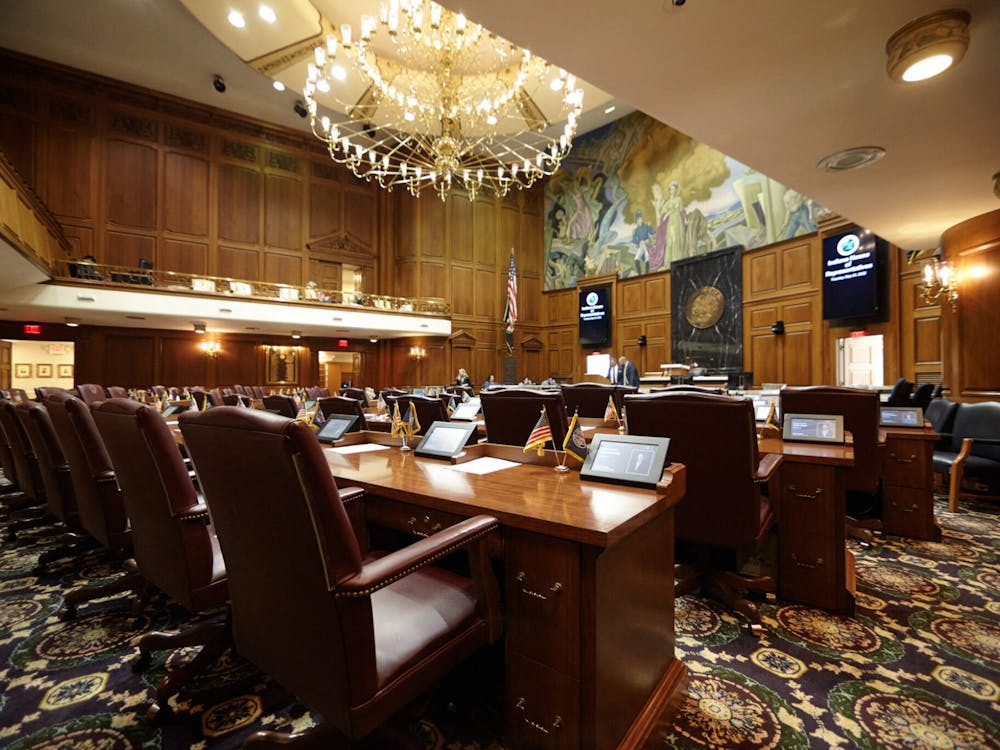WASHINGTON (AP) — President Barack Obama's budget submission on Monday will take a surgical approach to a deficit problem that his Republican rivals say warrants a meat ax.
As Obama seeks $53 billion for high-speed rail over the next few years, House Republicans are trying to pull back $2.5 billion that's already been promised. He's seeking increases for his "Race to the Top" initiative that provides grants to better-performing schools; Republicans on Friday unveiled a five percent cut to schools serving the disadvantaged.
Monday's release of next year's budget plan will be likely ignored by resurgent Republicans intent on cutting $100 billion from the president's old budget.
The GOP drive to slash 2011 spending and much of the savings sought by Obama involve just a small piece of the budget pie — the annual domestic agency budgets that make up just one-tenth of federal spending. Tea party-backed House Republicans are trying to slash tens of billions of dollars in such programs to return them to levels when Obama first took office.
Obama's promise to freeze budgets of domestic agencies at 2010 levels for five years — an austere plan by itself — looks generous by comparison.
On Saturday, he promised the government will have to tighten its belt.
"This budget asks Washington to live within its means, while at the same time investing in our future," the president said Saturday in his weekly radio and Internet address. "It cuts what we can't afford to pay for what we cannot do without. That's what families do in hard times. And that's what our country has to do too."
But Obama is likely to ignore the most painful recommendation of his bipartisan budget commission when releasing his $3.5 trillion-plus budget on Monday.
While Obama invited Republicans in last month's State of the Union address to sit down and seek a "bipartisan solution to strengthen Social Security for future generations," he won't offer any specific policy prescriptions on how to fix the program. The deficit commission offered politically dangerous ideas like raising the Social security retirement age, trimming future benefit increases and reaping more payroll taxes from better-off workers.
"I'm really disappointed," said House Budget Committee Chairman Paul Ryan, R-Wis., on reports Obama won't offer proposals to extend the solvency of Social Security. "Health care, I get it. We have a difference of opinion on health care. On this issue (Social Security) ... we're like 95 percent of the way there. We were so close. We weren't there yet, but we were close."
In fact, the upcoming budget is unlikely to even meet the president's own goal set last year of getting the deficit down to 3 percent of the size of the economy by 2015. That was the job Obama gave the fiscal commission, which exceeded it with a host of painful recommendations, such as to eliminate or sharply scale back popular tax breaks, reform a financially unsound long-term care program and almost double the federal tax on gasoline with a 15 cents-per-gallon increase.
None of those steps are likely to be in the Obama blueprint.
"The White House has put out its own fiscal target and there's no reason not to hold them accountable for meeting it," said Maya MacGuineas of the Committee for a Responsible Federal Budget, a bipartisan group that advocates fiscal responsibility. "It's troubling that signs are they will miss their own target. There's no excuse for that other than political unwillingness."
Instead, Obama promises to seek eliminating tens of billions of dollars in tax breaks for oil companies — even though such ideas went nowhere under Democratic control of Congress and have even less of a chance now.
Obama wants to use such proposals and cuts of other programs to pay for increased spending on education, infrastructure, science and research that he says is needed to boost U.S. competitiveness.
Republicans say that Obama's freeze on domestic accounts funded by Congress each year — which amount to just about 10 cents of every dollar the government spends — simply keeps in place a generous 24 percent increase awarded by Democrats over the past two years.
"The president's proposal for a freeze in government spending might give the White House a nice talking point," said Sen. Orrin Hatch in the GOP reply to Obama on Saturday. "But it is a totally inadequate solution to our nation's spending problems."
A battle over spending and even a potential shutdown of the government looms in coming weeks.
The House GOP budget measure unveiled Friday is loaded with pain: a $1.1 billion, 15 percent cut to Head Start; a massive $3 billion — or two-thirds — cut in community development block grants that are treasured by local officials. Health research, foreign aid and the Peace Corps would be sharply cut.
That measure was drafted after an earlier version was too timid for freshmen elected last fall with help from tea party activists. Some $26 billion in cuts were added, almost doubling those in the earlier measure.
Republicans also proposed eliminating a $75 million in programs offering housing vouchers to homeless veterans, and cutting by 10 percent a program that feeds more than 9 million pregnant women and their babies.
But the GOP bill would preserve a program opposed by Obama to build an alternative engine for the F-35 Joint Strike Fighter, which is strongly backed by House Speaker John Boehner as it will save jobs in his state of Ohio, as well as Indiana and other states. And a program providing subsidies for small airlines to serve isolated airports appears like it'll go untouched — even though those subsidies are often hundreds of dollars per round trip.
While the earlier version protected the maximum $5,550 Pell Grant for college students, Friday's measure would force an $800 cut, Democrats said.




